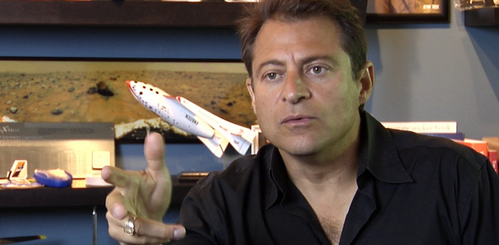Peter Diamandis Reports About The Technological Innovation Over The Next 30 Years (+VIDEO)

The opening session of the first annual CIO Journal conference was marked by the statement of Peter Diamandis, a well-known entrepreneur and X Prize Foundation creator, on the development of technologies. He founded the X Prize Foundation to offer an incentive for people to develop beneficial technologies. The rapid pace of technological innovation almost insures massive social changes. One of them is the price of technology which is gradually falling, so will the cost of living, enabling the world to meet the basic needs of all people within 30 years. Mr. Diamandis claims that the gap between the wealthiest and the poorest people may increase, but the definition of poverty will keep changing: 99% of the poorest people in the U.S. have amenities that the wealthiest people of 100 years ago couldn’t imagine. Most corporations aren’t ready for massive technological disruption, so it’s of great importance to listen to younger people with “crazy” ideas and to find ways to acquire entrepreneurial companies without snuffing out the things that make them innovative. Mr. Diamandis emphasized eight areas:
Biotech
Now, even some high school students have displayed an ability to sequence DNA, and life is looking less like a fixed condition, and more like a manufacturing process.
Computational Systems.
Computers that can model almost anything are now cheaply and widely available to more and more people, who can lease them by the minute via cloud-based services.
Networks and Sensors.
Wireless devices embedded in objects are gathering huge amounts of data that can be modeled by people who are able to “ask the right questions.”
Artificial Intelligence
AI is creating a new generation of personal digital assistants that are so smart they can tell people where they need to go next, without even being asked or prompted.
Robotics
The robots are coming and they are going to be everywhere, performing all sorts of tasks that people once did. “Jobs are going from China to India to robots,” Mr. Diamandis said.
Digital Manufacturing.
Lego won’t be a toy manufacturer. It will be an information company that creates blueprints for toys. Consumers will produce the parts at home using 3D printers that spit out Legos—along with all sorts of other objects, Mr. Diamandis.
Medical Technology
Modern medicine is information technology, according to Mr. Diamandis, who predicted that small mobile devices will allow people to self-diagnose their own health conditions.
Nano Technology
Nano technology won’t stop with warmer and lighter pairs of shoes. Mr. Diamandis envisions high strength, light weight fabrics that enable personal air flight.
Via:blogs.wsj.com
| Tweet |











